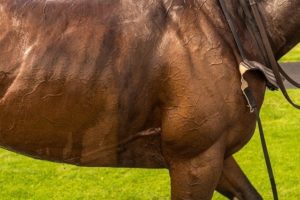What is a Stakes Race?
Historically, the term ‘stakes race’ was used to describe a horse race in which the participants competed for prize money contributed, wholly or in part, by their owners. The official titles of the five British Classics – that is, the 1,000 Guineas, 2,000 Guineas, Derby, Oaks and St. Leger – all contain the word ‘stakes’, which provides a clue to the history of the term.
Nowadays, owners contribute to prize money through entry fees so, strictly speaking, every horse race could be described as a stakes race. However, ‘stakes race’ is commonly used, specifically, to describe a race for which eligibility is determined by official handicap ratings, as assigned by the British Horseracing Authority (BHA), but weight carried is not.
For example, to be eligible to run in the highest level stakes races on the Flat, known as Group One races, horses aged three years and upwards must have achieved a minimum rating of 80. Nevertheless, Group One races are run off level weights, with allowances for age and gender; the same principle applies to Group Two, Group Three and Listed races. The BHA also employs an umbrella term, ‘conditions stakes race’ to describe any lower-level Flat race that is not a handicap, maiden, selling or claiming race.
 Generally speaking, sweating in racehorses is a good sign insofar as it helps to regulate body temperature. The evaporation of sweat, which is 90% water, creates a cooling effect, known as evaporative cooling, which lowers the body temperature. Of course, racehorses have a thick, waterproof, hairy coat, so their sweat contains a protein, known as latherin, which accelerates the transfer of sweat from the skin to the surface of the hair. When subject to friction, from girths, reins, etc, latherin can cause foaming, or lathering, of the sweat. Sweating can also reflect the physical condition of a racehorse. The fitter the horse, the better it becomes at regulating body temperature and the more readily it sweats.
Generally speaking, sweating in racehorses is a good sign insofar as it helps to regulate body temperature. The evaporation of sweat, which is 90% water, creates a cooling effect, known as evaporative cooling, which lowers the body temperature. Of course, racehorses have a thick, waterproof, hairy coat, so their sweat contains a protein, known as latherin, which accelerates the transfer of sweat from the skin to the surface of the hair. When subject to friction, from girths, reins, etc, latherin can cause foaming, or lathering, of the sweat. Sweating can also reflect the physical condition of a racehorse. The fitter the horse, the better it becomes at regulating body temperature and the more readily it sweats.